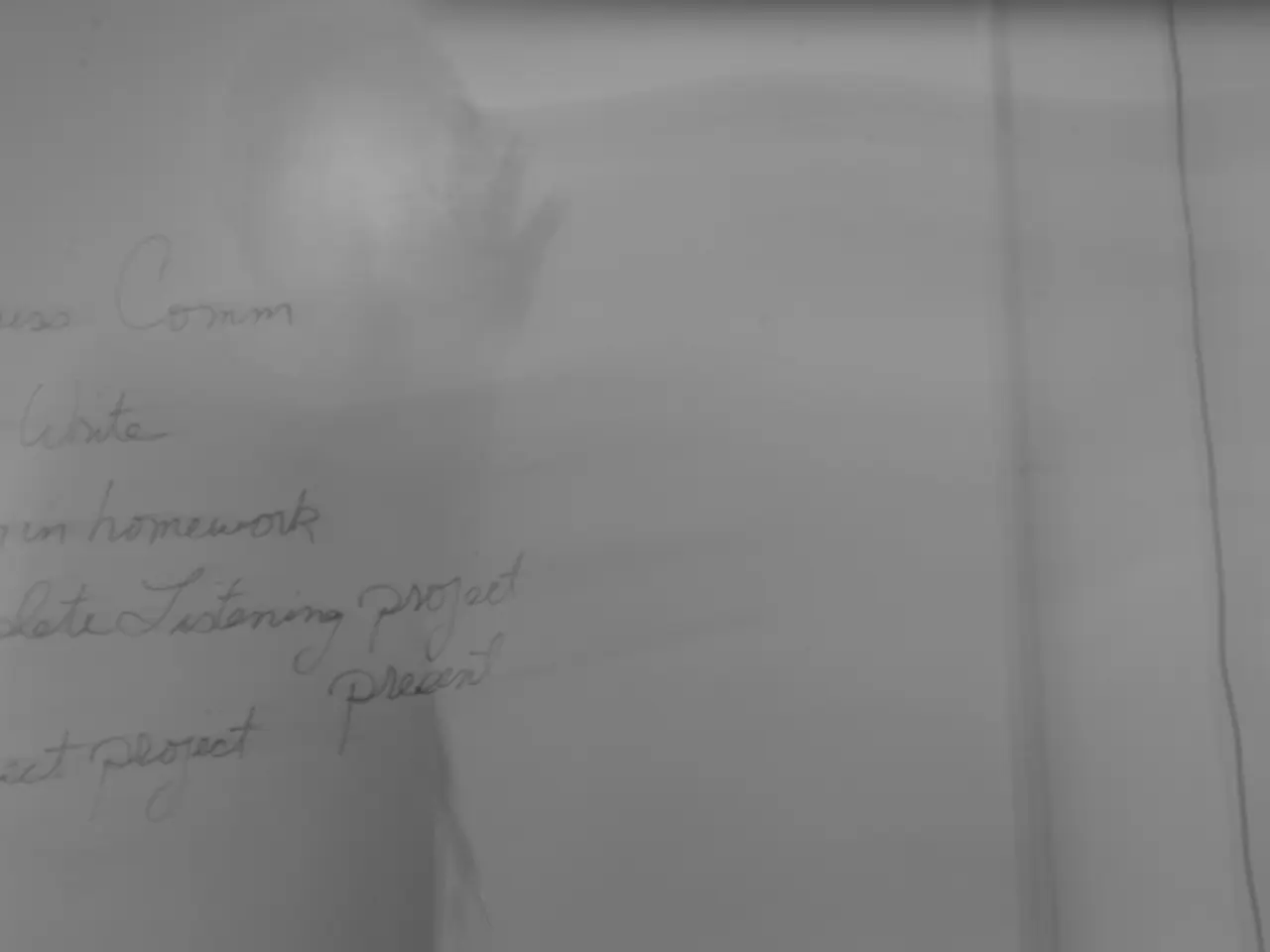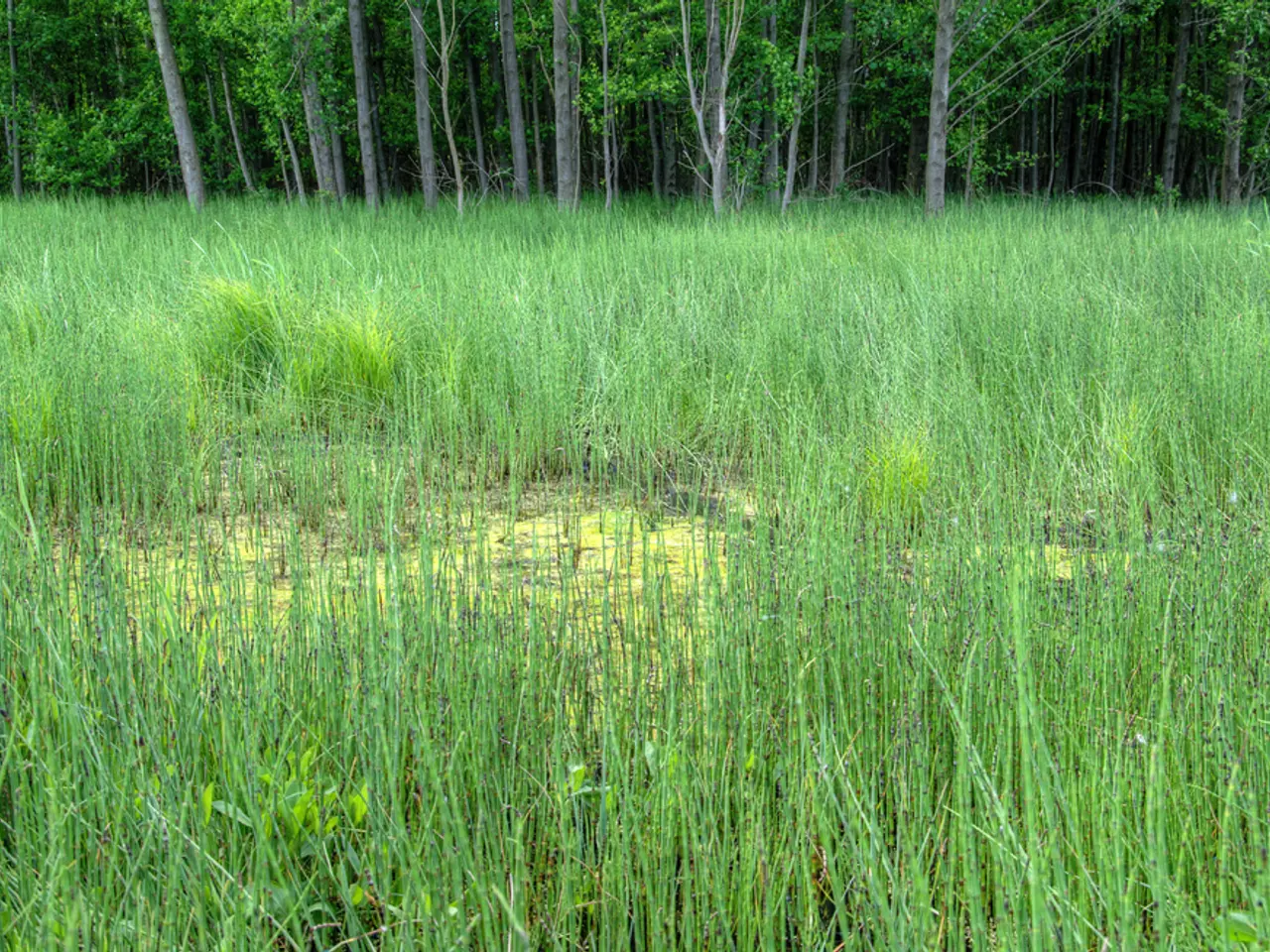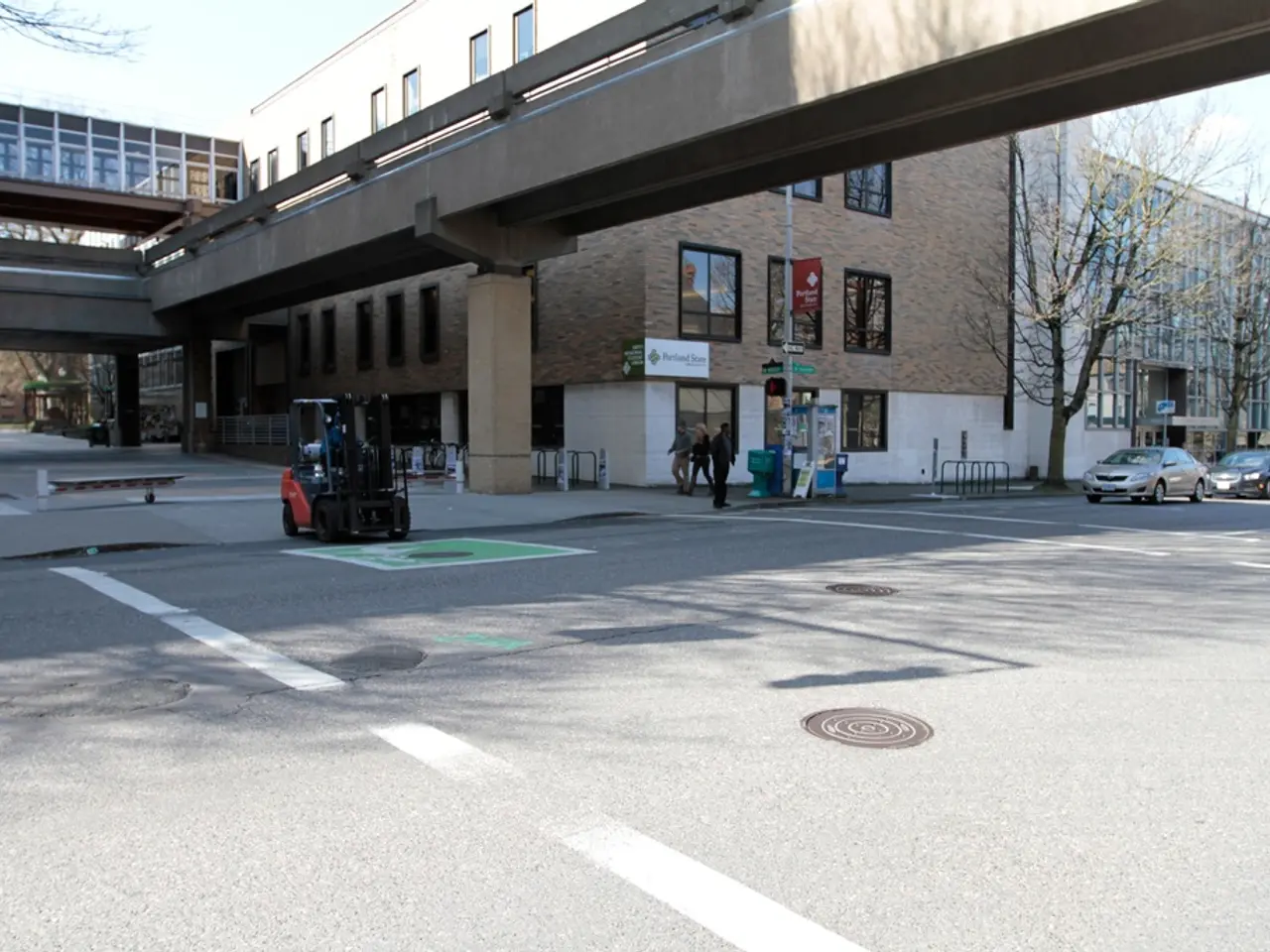Mohamed Ali, branch manager of BSW, denies collaboration with the AfD party. - EU's international diplomacy strategy
In a surprising development, exploratory talks between Germany's right-wing populist Alternative für Deutschland (AfD) and the left-wing nationalist Sahra Wagenknecht Alliance (BSW) have emerged, signalling a significant shift in the country's political landscape.
**Current Status of Cooperation Talks**
The initial discussions between the parties have been confirmed, with notable meetings taking place in Thuringia between BSW state leader Frank Augsten and AfD regional leader Björn Höcke. AfD federal co-leader Tino Chrupalla has also confirmed that talks are ongoing on the federal level, suggesting potential collaboration beyond regional cooperation.
**Political Context**
The AfD, currently the second most popular party in Germany, has been largely ostracized by mainstream parties due to its hardline anti-immigration stance and classification as a "confirmed right-wing extremist endeavor" by Germany's Federal Office for the Protection of the Constitution (BfV). The BSW, led by Sahra Wagenknecht, is a newer party that narrowly missed the 5% threshold needed for federal Bundestag representation in the 2025 elections.
**Implications of Potential Cooperation**
- **Parliamentary Majorities at State Level:** In Thuringia, the AfD and BSW together hold a potential majority of 47 seats out of 88, which could enable them to pass legislation if they cooperate. Similar possibilities exist in Brandenburg where they would hold half the seats, though in Saxony they would fall short of a majority.
- **Breaking the Political Firewall:** The cooperation threatens to erode the long-standing "Brandmauer" that has kept AfD isolated, potentially normalizing collaboration between right-wing and left-wing populists in Germany.
- **Electoral Impact:** AfD fears vote losses in eastern Germany due to BSW's emergence, but cooperation might merge their voter bases or create a broader populist bloc challenging the established parties.
- **Controversy and Opposition:** Given AfD's extremist classification and BSW's left-wing nationalism, cooperation might intensify political polarization and provoke strong resistance from centrist and left-leaning parties.
**Perspectives and Outlook**
While regional cooperation could soon materialize into legislative influence in states like Thuringia, extending this to the federal level remains uncertain. The ideological differences between AfD and BSW—right-wing populism versus left-wing nationalism—pose challenges, but their mutual opposition to the established political order and mainstream parties provides common ground.
Despite Sahra Wagenknecht's denial of current talks, Chrupalla has reported having contacts with BSW at the federal level. The exact level and nature of these talks remain unclear. If cooperation solidifies, it may force mainstream parties to reconsider their strategies and could lead to a reconfiguration of German federal politics with potential impacts on policy debates, especially around immigration, economic policy, and Germany’s political identity.
The Commission, mindful of these political developments in Germany, might consider adjusting the common agricultural policy to align with changing political dynamics, in a bid to ensure the implementation of its proposals is consistent with the broader policy-and-legislation landscape.
In light of the emerging cooperation between the Alternative für Deutschland (AfD) and the Sahra Wagenknecht Alliance (BSW), general news outlets may find it crucial to closely monitor potential changes in the policy landscape, particularly regarding immigration, economic policy, and Germany’s political identity.






